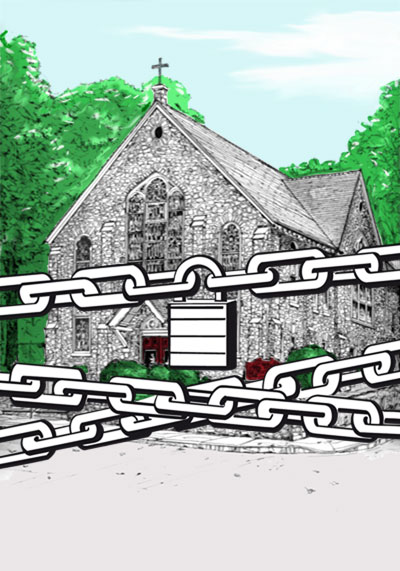Redeemer, East Falls, Marks Second Anniversary of Lockout
In the book, Mayflower: A Story of Courage, Community, and War, the author, Nathaniel Philbrick, tells how the early New England settlers came across numerous foot-deep, circular holes scattered across the landscape.
The Native Americans explained they are “memory holes” marking a significant event that may have occurred at that spot centuries before. A tribal member was assigned the task of maintaining the holes and the historical accounts that went with them.
Philbrick writes, [they] “began to see that they were traversing a mythic land, where a sense of community extended far into the distant past, ‘So that as a man travelleth . . ,’ Winslow wrote, ‘his journey will be the less tedious, by reason of the many historical discourses [that] will be related unto him.'”
Such might be the memories of our small congregations, stored in the hearts of the oldest members and retold at church gatherings for decades until they become part of the fabric of Christian community.
Unfortunately, communal memories are often discouraged today. Ridding a group of people of their past is one way of claiming victory. The United States as a nation used this as a weapon when we fought the indigenous peoples of North America. It was done over and over — take the land, forbid the use of the native language, discourage local customs, and herd survivors away from their sacred spots. Steal the memories and you control the people.
There is a hole in front of Redeemer Church. A small long-present sinkhole seems to have deepened with this year’s rains. It now has police tape around it. It’s right next to the sign forbidding dogs on the property and not far from the locked doors, the windows of which are now covered with cloth, even further alienating the community of East Falls from one of its sacred places.
Redeemer’s historical records have been boxed and carried away by strangers with no connection to our history. They are gathering dust in a seminary library. But we who still live in the Redeemer neighborhood can still look at the church, the locked doors, the offensive signage and the growing “memory” hole and keep the history of our community of faith alive. Tell it!

